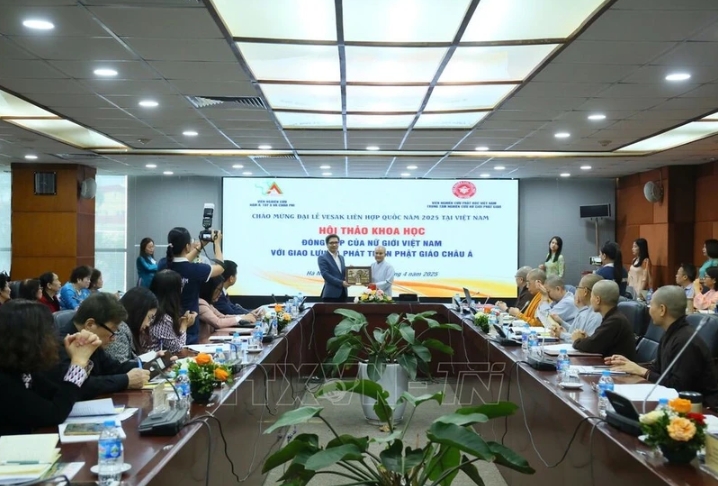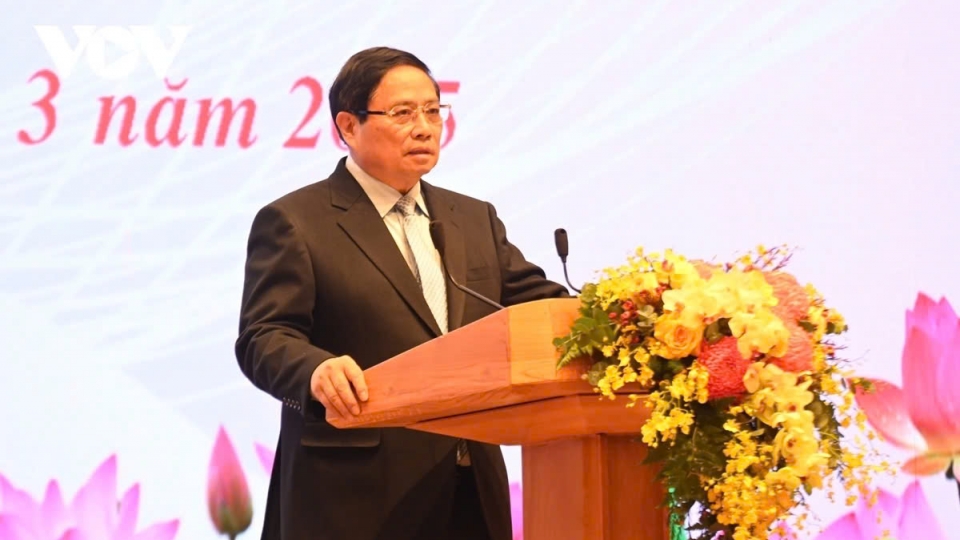Seminar highlights Vietnamese women’s contributions to development of Buddhism
A seminar was held in Hanoi on April 4 to discuss contributions of Vietnamese women to the exchange and development of Buddhism in Asia, attracting a large number of scholars, researchers, and Buddhist monks, nuns, and followers.

Participants analysed the current situation, opportunities, and challenges for Vietnamese women, especially nuns, in international integration amidst the Fourth Industrial Revolution, and proposed solutions to them.
The seminar provided an opportunity for participants to discuss and share knowledge to explore ways to contribute to the economic, social, and cultural development of Vietnam in its current era of growth.
Addressing the event, Associate Prof. Dr. Nguyen Xuan Trung, Director of the Institute of South Asian, West Asian and African Studies (ISAWAAS) noted that recognising and acknowledging the contributions of women in the international exchange and development of Buddhism will significantly encourage them to play a more active role in the Buddhist community, both in Vietnam and internationally, especially across Asia.
Dr. Kieu Thanh Nga from the ISAWAAS held that Vietnamese nuns serve as a bridge in Buddhist exchanges within Asia.
Despite many challenges, their spirit of dedication and compassion has led to substantial contributions in connecting cultures and teachings between nations. Many Vietnamese nuns working in Asian countries have proactively established educational institutions, conducted Vietnamese and local language classes, and participated in community and charity activities. In doing so, they not only spread Buddhist teachings but also promote Vietnamese culture in a dynamic and accessible manner, she said.
Dr. Tong Thi Quynh Huong from the Hanoi University of Education highlighted that Vietnamese nuns are actively involved in preserving the cultural values of Buddhism in the region. Over the course of the development of Eastern Buddhism, they have taken on important roles, such as founding and maintaining monasteries, organising meditation sessions for laypeople, preserving and promoting traditional rituals, and translating Buddhist scriptures to fit local cultural contexts.
Through these practical activities, Vietnamese nuns have helped maintain a strong connection between Vietnamese Buddhism and major Buddhist cultures in the region, such as China, Japan, the Republic of Korea, India, and Thailand, said Huong, holding that these efforts not only reflect integration but also serve as proof of the harmonious development of both tradition and modernity.



